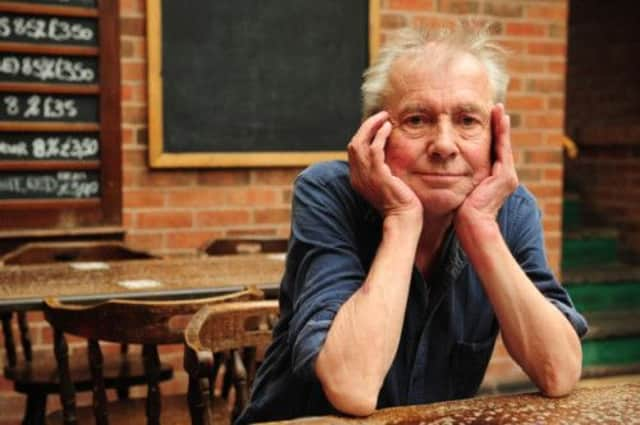Obituary: Ray Gosling, broadcaster and journalist


Ray Gosling first became a popular figure on radio more than 50 years ago and presented more than a hundred television documentaries. He was one of the best known faces on television and while much of his work was seen in the north-east of England, for Granada, he became well known nationally for informal and entertaining programmes about much-loved British institutions. He was never one to court the celebrities, preferring to chat with ladies at a bus stop or men in a pub.
Gosling had a charismatic and distinctive delivery – his impromptu style was quirky and idiosyncratic but it gave his series an unexpected and the slightly irreverent feel.
Advertisement
Hide AdAdvertisement
Hide AdIn 2010 Gosling gained much attention when on television he said straight to camera that he had killed in an act of euthanasia a lover who was dying of Aids. Gosling was arrested but released on police bail. He was later prosecuted for “wasting police time” as he had fabricated the claim and was not in the UK at the time of the death. He was later given a suspended sentence.
In an effort to justify his erratic action Gosling later admitted: ‘I looked into that camera. And I just said I had carried out a mercy killing.” It was typical of this mercurial broadcaster who was inclined to go off script. It delighted his audiences but was not always popular with broadcasting executives. In truth, Gosling was a broadcasting maverick.
Ray Gosling was the son of a mechanic and educated at Northampton Grammar School. He read English at Leicester University but dropped out and in 1960 to found a youth club, the Leicester Youth Venture.
He then moved to London and managed a rock band. He was a hardened teddy boy (“I felt in my heart it was more than a fashion,” he recalled. “It was a belief: teds to change the world”) but displayed a real keenness to write.
After submitting articles to underground papers he approached the publisher Faber & Faber, which suggested he wrote a book.
So, at 21 Gosling wrote Sum Total – what amounted to his autobiography. He wrote of the inner worries and hang-ups of an adolescent at large in London and how his generation was striving for something different and better. The book enjoyed a modest success and in 2004 an independent publisher republished it as it captured the spirit of the late 1950s and the emerging youth culture.
In the 1960s the book brought Gosling into contact with the broadcast media and after moving to Nottingham his distinctive and relaxed voice led to him getting work on a variety of programmes including providing the interval talks at concerts on Radio 3.
He soon became a familiar face on BBC, Granada and later Channel 4. An early success was in Manchester when he campaigned to have a ramp built outside the house of a wheelchair user. The council was furious when he offered to make a ramp for her. The next day Granada was inundated with congratulations and Gosling was booked for a weekly spot.
Advertisement
Hide AdAdvertisement
Hide AdIn 1963 he filmed for Channel 4 an acclaimed documentary on Leicester and Nottingham, Two Town Mad, which chronicled his own connections with the cities. For the prestigious Dispatches programme Gosling gave a poignant account of a patient suffering from locked-in syndrome. In 1988 he made a critically acclaimed series on Radio 4 entitled Who Owns Britain?
A major focus of Gosling’s life was his campaign for gay rights. He had been connected with the Campaign for Homosexual Equality since the 1960s and in more recent years set up Gay Monitor, a website to combat injustice against gay men.
Gosling had to cope with his own inner pressures – he had had a drink problem in the past and in 2000 was declared bankrupt after failing repeatedly to pay his tax. He had lived a somewhat ramshackle existence in a large house full of clutter and unfiled press cuttings. With typical resilience he turned his misfortune to his benefit and in 2002 he made three incisive films for the BBC, entitled OAP, Bankrupt and Pensioned Off.
Gosling was a charming, but slightly unpredictable, presenter. He never mastered a typewriter, let alone a computer, but with his clearly accented Midlands voice – allied to his vivid brand of poetic realism – he became popular with the public.
His desire to highlight “important little things”, as he called them, gave him an immediate contact with his audience.
He himself was a delightful eccentric and he took pleasure in talking about everyday things – from gnomes, garden sheds to allotments.
“Not London, Paris and Rome,” he recalled once, “but Goole, Weymouth. The little things.”